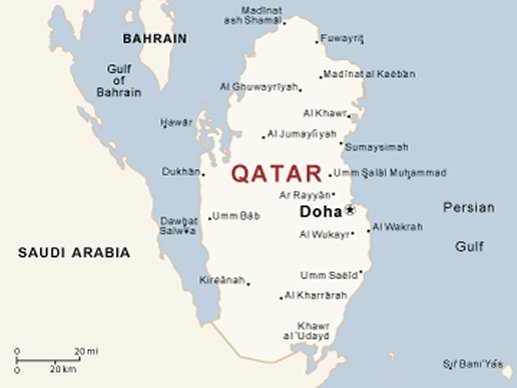
Qatar has deported migrant workers for staging a rare protest against unpaid wages less than three months before the football World Cup, a labour rights group said on Monday.
Qatar’s government, which has faced an intense spotlight over the treatment of migrants, has confirmed that some of the workers who took part in the August 14 protest were detained but has given no details as to whether they have been expelled.
During the protest earlier this month in Doha, at least 60 workers — including some who had reportedly not been paid for seven months — held up traffic outside the Al Bandary company, according to Equidem, a London-based labour rights campaign organisation.
“We have spoken to workers involved in the protests (including) one who has been deported back to Nepal, and confirmed he has returned,” said Equidem head Mustafa Qadri said.
“Others from Nepal, Bangladesh, India, Egypt and the Philippines have also been deported,” he added.
Qatar’s government said on Sunday that “a number of protesters were detained for breaching public security laws”.
It added that “a minority of protesters who failed to remain peaceful and acted in breach of Qatar’s public security laws face deportation by court order”.
However, it did not give details of how many workers it involved.
The labour ministry said it is paying salaries and benefits owed to Al Bandary workers. It added that “further action” was being taken against the company, which was already under investigation for failing to pay wages.
The FIFA World Cup starts in the tiny energy-rich state on November 20.
Qatar has faced accusations of under-reporting deaths among migrant workers and of not doing enough to alleviate harsh conditions. Unpaid wages have also been frequently raised.
While rights groups have stepped up their campaigns ahead of the World Cup and called on FIFA to pay compensation to workers, the government has highlighted major reforms it has introduced.
It has introduced a minimum wage, dismantled a scheme that gave employers stringent rights over workers, and toughened rules on working in summer heat.
Authorities say that nearly all “eligible workers” are covered by a new wage protection system as part of the reforms.
AFP













